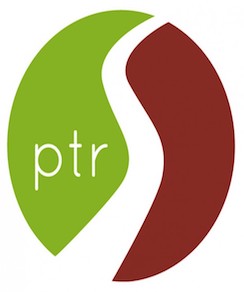On September 22nd and 23rd our Pathways to Results staff attended and presented at the Forum for Excellence conference held in Bloomington, IL sponsored by the Illinois Community College Board (ICCB) and hosted by the Illinois Center for Specialized Professional Support (ICSPS). The Forum for Excellence is an annual professional development conference for Career and Technical Education (CTE) to discuss and share best practices across the state. This year, the conference included adult basic educators as the ICCB continues to cultivate and strengthen relationships. PTR fits into this work as it is designed to help community college practitioners, historically in CTE career pathways, to improve equitable outcomes for all student groups through a systematic process. Three sessions on PTR were held during the two day conference. The first day a PTR pre-conference was held for teams interested in participating in PTR during this fiscal year. That afternoon another session, moderated by the ICCB, offered select PTR teams the opportunity to share their experiences with implementing PTR. On day two, we held a session discussing some of the changes and new products being offered with PTR. Below are a select few highlights from the conference.
Pathways to Results Kickoff and New Opportunities Pre-Conference
The purpose of the PTR Pre-Conference was to provide information to those interested in participating in PTR during the current fiscal year. Teams were given information regarding year one and year two grant eligibility, goals, and expectations. After a general overview was given there were two breakout sessions, one for year one grants and another for year two grants.
Year One Session: During the year one breakout session conference attendees were provided with OCCRL’s latest edition of Principles to Guide Career Pathways and Programs of Study Implementation and Improvement. The Guiding Principles served as a jump-off point for several attendees in identifying pathways or program of study that would like to potentially improve at their institution. Judy Dietrich, from Illinois Central College also shared her experience in engaging potential partners and stakeholders to the pathway improvement process for those who were concerned about maintaining partner engagement and commitment. Our goal for this session was to provide attendees with knowledge of the process and help them to better identify an area of focus as they consider applying for a year one PTR grant.
Year Two Session: In the year two session attendees were provided a framework for year two projects. Beyond discussing the theoretical underpinnings of the year two process, a great deal of this session focused on teams sharing their progress on their projects and receiving feedback from other conference attendees feedback. This session was insightful in that it was a small example of our goal to establish network communities by which teams can work within and outside of their teams/colleges to ensure that they are developing and implementing the best possible solutions in order to improve student outcomes. It was a great start to the types of conversations and feedback we envision teams to have moving forward.
Using Pathways to Results Beyond Programs of Study Development: A Panel on Innovation and Diverse Results
In this session attendees were able to hear firsthand what PTR implementation entails from teams that were awarded PTR grants last fiscal year. The three teams shared their respective projects, but also discussed roadblocks that they encountered and how they overcame or are working to overcoming those barriers. Panelists shared their thoughts on how and why they engage their stakeholders, how their data led them to issues within their pathways, and how they worked to align their solutions with identified equity gaps. What seems to be consistent across the three is the systematic adoption of PTR at these institutions and within the study pathway, as teams indicated that they have continued their work from the previous year.
Pathways to Results: New Opportunities, New Tools for Improving Student Pathways
In this session OCCRL graduate research assistant Edmund Graham spoke about the transition that PTR has taken over time as a result from field experiences. As a result, Jackie Rodriguez, graduate research assistant, introduced new practical tools for individuals and teams to better understand and solve student outcomes gaps within their PTR project by engaging students in the process. Shelley Barkley from Sauk Valley Community College complemented this by sharing her experiences. Shelley not only demonstrated the way in which focus groups or having “student representatives present at PTR meetings when looking at data” exposed alternative solutions to outcome gaps, but also how PTR’s focus on equity helped shift her focus from a student deficit perspective to an institutional responsibility in defining a problem. After all, “students are the ones receiving the change so we need to invite them into the conversation.”
The Forum for Excellence was a great kick off to PTR and an opportunity to further connect with and learn from those on the ground doing the work and we’re excited for the year ahead!
Jacqueline Rodriguez is a graduate research assistant for the Pathways to Results project at OCCRL. Ms. Rodriguez is a PhD student in Education Policy, Organization and Leadership at the University of Illinois at Urbana-Champaign. Her research interests include investigating the educational and economic mobility prospects for Black and Latino youth.
Edmund Graham is a graduate research assistant working on the Pathways to Results project at OCCRL. Mr. Graham is an EdD student in higher education at the University of Illinois at Urbana-Champaign. Prior to working with OCCRL, Mr. Graham served as a student affairs administrator. His research interests include college student development, retention, and persistence.
